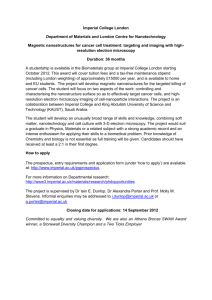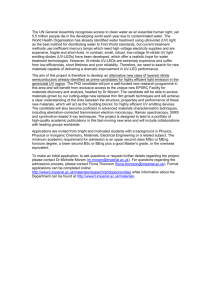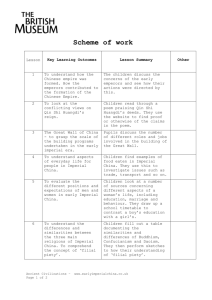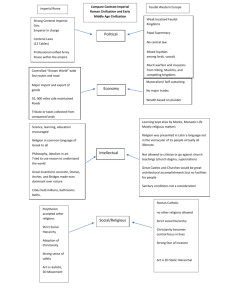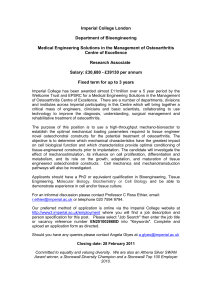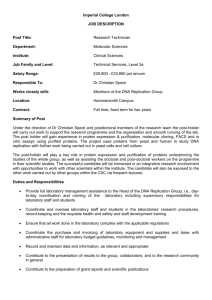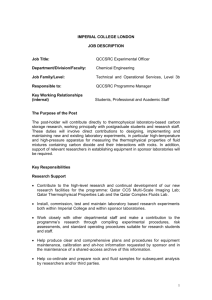Division of Paediatrics, Obstetrics & Gynaecology,
advertisement
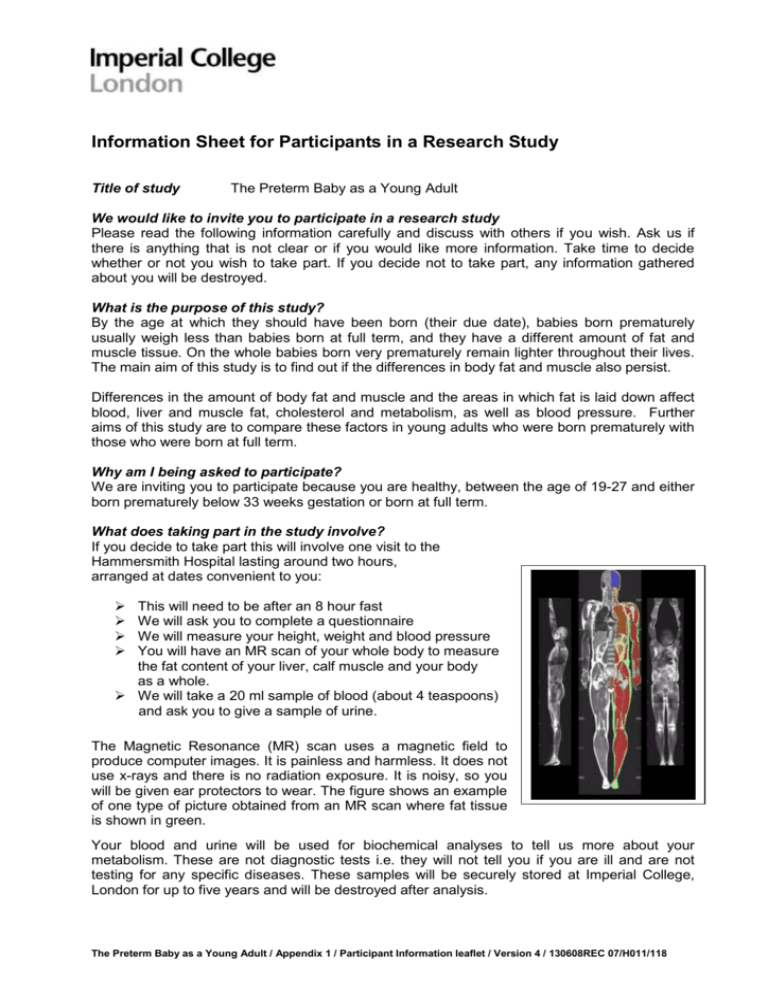
Information Sheet for Participants in a Research Study Title of study The Preterm Baby as a Young Adult We would like to invite you to participate in a research study Please read the following information carefully and discuss with others if you wish. Ask us if there is anything that is not clear or if you would like more information. Take time to decide whether or not you wish to take part. If you decide not to take part, any information gathered about you will be destroyed. What is the purpose of this study? By the age at which they should have been born (their due date), babies born prematurely usually weigh less than babies born at full term, and they have a different amount of fat and muscle tissue. On the whole babies born very prematurely remain lighter throughout their lives. The main aim of this study is to find out if the differences in body fat and muscle also persist. Differences in the amount of body fat and muscle and the areas in which fat is laid down affect blood, liver and muscle fat, cholesterol and metabolism, as well as blood pressure. Further aims of this study are to compare these factors in young adults who were born prematurely with those who were born at full term. Why am I being asked to participate? We are inviting you to participate because you are healthy, between the age of 19-27 and either born prematurely below 33 weeks gestation or born at full term. What does taking part in the study involve? If you decide to take part this will involve one visit to the Hammersmith Hospital lasting around two hours, arranged at dates convenient to you: This will need to be after an 8 hour fast We will ask you to complete a questionnaire We will measure your height, weight and blood pressure You will have an MR scan of your whole body to measure the fat content of your liver, calf muscle and your body as a whole. We will take a 20 ml sample of blood (about 4 teaspoons) and ask you to give a sample of urine. The Magnetic Resonance (MR) scan uses a magnetic field to produce computer images. It is painless and harmless. It does not use x-rays and there is no radiation exposure. It is noisy, so you will be given ear protectors to wear. The figure shows an example of one type of picture obtained from an MR scan where fat tissue is shown in green. Your blood and urine will be used for biochemical analyses to tell us more about your metabolism. These are not diagnostic tests i.e. they will not tell you if you are ill and are not testing for any specific diseases. These samples will be securely stored at Imperial College, London for up to five years and will be destroyed after analysis. The Preterm Baby as a Young Adult / Appendix 1 / Participant Information leaflet / Version 4 / 130608REC 07/H011/118 . Who should not take part? People with implanted metallic devices or pacemakers. Women who are pregnant. People who experience claustrophobia (fear of confined places) Do I have to take part? No. It is entirely up to you. If you do decide to take part, you will be asked to sign a consent form. You will be given copies of this information sheet and the signed consent form to keep. If you change your mind about taking part at any stage, you are free to withdraw from the study without giving a reason. What are the advantages of taking part? There are no direct benefits for participants. The information from this study will help us to understand the long term differences between babies born at term and premature babies. What are the disadvantages of taking part? We will take up some of your precious time. We expect your entire visit to take around 2 hours. We will reimburse you for parking fees for the hospital car park or public transport costs. What if we find something that we don’t expect? The MRI scan we do is designed for research and not to give clear images of all parts of the body. However all the MRI scans are reported by a radiologist and a report is sent to your GP. The blood and urine samples will not be used to look for illness or disease but if we note something unexpected that requires further investigation, we will inform you and your GP. What happens if something goes wrong? It is very unlikely that anything will go wrong. MR scans are painless and radiation free. Taking a blood sample might leave slight bruising. However in the unlikely event of you suffering any adverse event as a consequence of your participation in the study, you will be compensated through the Imperial College School of Medicine’s ‘No Fault’ Compensation Scheme. Will my taking part in this study be kept confidential? All information collected in the course of the research will be kept strictly confidential. What will happen to the results of the research study? We will publish the results in a scientific journal. No participant will be identified in any report. Future Plans: We hope to continue researching ex-preterm infants as adults. We would like your permission to contact you in the future to discuss these studies. Please be assured that participation in this study does not commit you in any way to taking part in future studies. Thank you for reading this. Please do not hesitate to ask any one of us if you have any questions. Dr James Parkinson, Research Associate, Imperial College London Tel: 020 8273 5418; Mobile: 07973 932788; email: jrcp@imperial.ac.uk Dr Mathew Hyde, Research Associate, Imperial College London Tel: 020 87 46 8421; Mobile: 07729 307433; email: matthew.hyde02@imperial.ac.uk Dr Sabita Uthaya, Consultant Neonatologist, Imperial College London Tel 020 8746 7975; email: s.uthaya@imperial.ac.uk; bleep: 4838 Professor Neena Modi, Professor of Neonatal Medicine, Imperial College London Tel 020 8237 5102; email: n.modi@imperial.ac.uk; bleep 5874 Professor Jimmy Bell, Professor of Clinical Biochemistry, Imperial College London Tel 020 8383 1517; email: j.bell@imperial.ac.uk The Preterm Baby as a Young Adult / Appendix 1 / Participant Information leaflet / Version 4 / 130608 REC 07/H011/118 2
